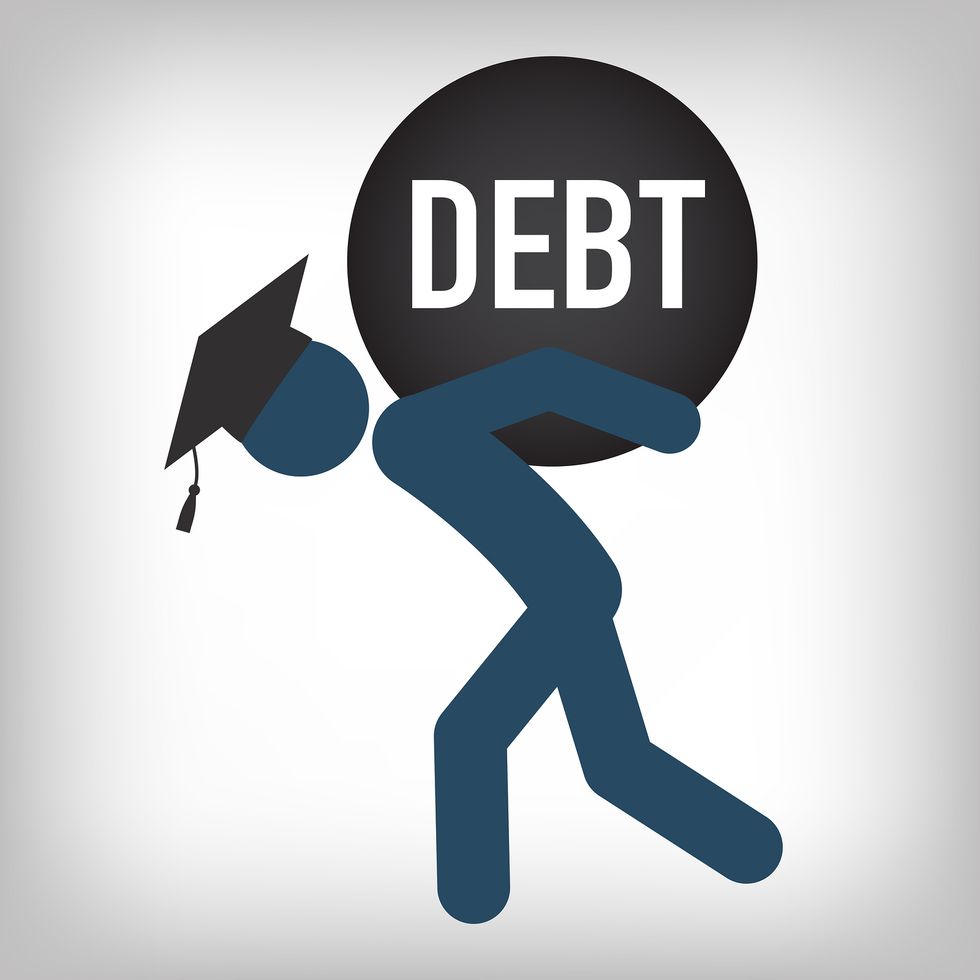Since the Great Recession, college attendance rates have risen dramatically. This is partly because 1) the technological upheavals of the last decade made having a college degree a necessary precondition for employment; 2) Obama administration radically transformed the student financial aid program in the US, which made getting a loan for college easier than ever; and 3) social media made the college experience more visible, and 18 year old kids found the idea of postponing their adulthood to party for 4 years rather attractive for obvious reasons.
By 2013, massive amounts of government subsidies were being directed to the college loan industry. The emphasis on ‘diversity, inclusion, and equity’ lead initiatives like the Equal Opportunity Commission to recruit applicants from areas that traditionally didn't yield many college students. These students, by no fault of their own, were coming from households that couldn’t normally support the pursuit of higher education efforts past high school. But the incentive structure has been set up as to entice these folks to take out loans – under the impression that they will get a good paying job after college. Coupled with the attractiveness of participating in the college experience, these applicants happily have, and continue to agree.
These factors have directly contributed to the staggering rise in the cost of attending college. But even as the price of attending college continues to rise, demand keeps rising.
In response to growing demand, the number of 4-year colleges has increased by more than 50% since 2008. Like the students, colleges are under the impression that enrollment rates will keep rising. In an effort to capitalize on the “irrational exuberance” of the college loan industry, universities have invested billions in making their respective institutions more attractive to high school graduates.
In response to this growing demand, it can only be expected that colleges would do this; and so long as there is the demand to meet the supply, all if fine and dandy – until it isn’t.
Black Swans - low probability but high impact events like the 2008 financial crisis - have, and will again hit at the moment we least expect it. It is an irrefutable fact of the business cycle that there will be another economic downturn in the future. We can expect either a rise in inflation, wage stagnation, and or a rise in unemployment rate to plague our economy again – maybe not all at once, perhaps not to the degree that will send us into a true recession; but maybe it will.
Consider a scenario where our economy begins to stagnate, for any reason at all. Unemployment rates rise; entry-level salaries decline or stay the same (in real terms wage stagnation means wage decline because of inflation); and new college grads suddenly find it hard to get a good paying job, let alone a job at all. Perhaps college grads, who already had decent paying jobs, get laid off, and struggle to get back on their feet.
What might happen to the heavy loan burden these people still have to shoulder? We are talking tens to hundreds of thousands of dollars per person, and the institutions that supplied the funds aren’t going to just let borrowers off the hook. So the bills keep coming, large swaths of people can’t afford to pay them, and default rates start to rise.
Now universities are faced with a troubling situation: let’s backtrack. Wanting to capitalize on the euphoria in the market and draw students to their schools, institutions invest in amenities that students find attractive, like athletics and grandiose decorum; universities, like the students they recruit, take out loans to finance the projects and offer scholarships and financial aid opportunities to people who normally wouldn't be able to afford it. Under the impression that the value of their investment will continue to go up indefinitely, universities have no incentive to stop this cycle – in fact, they have an incentive to do it more.
They don't anticipate a rapid decline in enrollment rates; after all it’s unprecedented - enrollment rates have risen every year since the end of WWII. “Irrational exuberance” ensues, perpetuating the cycle to extraordinary lengths.
But what happens if a Black Swan event occurs? What happens if enrollment rates fall by magnitudes we have never seen before? If the jobs being offered to college graduates don’t offer the return on investment necessary to take on the debt to attend, people won’t go. It’s not like everyone will say “fuck it” to the whole college idea, but the number of people receiving loans will certainly decrease.
So, enrollment rates decline. College graduates and universities alike, saddled with debt, struggle to make their payments – default rates for both go up.
Now, this situation doesn't necessarily spell out catastrophe, but here we arrive at the crux of the matter: why did the collapse of the housing market lead to a global financial collapse, rather than just the housing sector itself? The short answer is because the US had over leveraged itself with the degree of debt it took on in the housing market. In other words, we invested so much of our economy in housing that what should’ve been a relatively isolated collapse ended up having out sized affects on every sector of the economy.
This may be the case with regard to student loans: at present, total US student loan debt sits at $1.5 trillion. 44.2 million Americans, nearly 1/5 of our population, have this financial cloud lingering over their heads.
Further, the US treasury Department reports that student loans account for 31% of all US government assets. Less than a decade after the passage of the Affordable Care Act, which effectively monopolized the student loan industry, the Federal Government is now the largest creditor of student loans.
With this situation, an event like the one in 2008 could very well play out with regard to student loans. The results would be catastrophic, and taxpayers will once again be left to foot the bill.



















